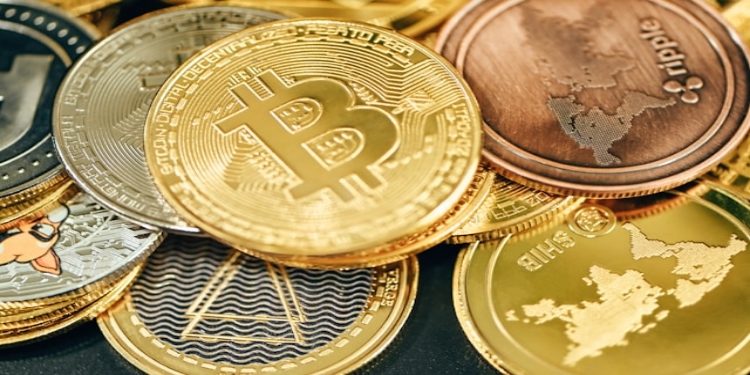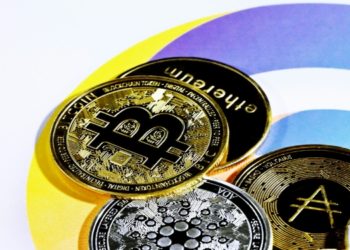Introduction to Altcoins
Altcoins, or alternative coins, are cryptocurrencies other than Bitcoin. They serve various purposes, from improving upon Bitcoin’s limitations to offering unique features such as smart contracts, privacy enhancements, and faster transaction speeds. Understanding the altcoin community is essential for beginners looking to explore the vast world of cryptocurrencies beyond Bitcoin. In addition, if you are planning to trade Bitcoin, you must have a trusted trading platform such as https://immediaterevolution.com/.
Types of Altcoins
There are several types of altcoins, each serving different purposes. Utility tokens, like Ethereum’s Ether, are used to access services or products on a blockchain platform. Security tokens represent ownership of an asset or company and are subject to securities regulations. Stablecoins are pegged to stable assets like fiat currencies, providing stability against market volatility.
Examples of popular altcoins include Ethereum, which pioneered smart contract functionality, Ripple (XRP) for cross-border payments, and Litecoin (LTC) for faster transactions. When choosing altcoins to invest in, beginners should consider factors such as the team behind the project, the technology’s potential, and the coin’s liquidity.
Getting Started in the Altcoin Community
To start navigating the altcoin community, beginners need to set up a cryptocurrency wallet. Wallets can be software-based (hot wallets) or hardware devices (cold wallets) and should be chosen based on security and convenience.
Next, beginners should choose a reputable cryptocurrency exchange to buy and sell altcoins. Centralized exchanges like Binance and Coinbase offer user-friendly interfaces but may be more susceptible to hacks. Decentralized exchanges (DEXs) like Uniswap and SushiSwap provide greater security but can be more complex to use.
Security is paramount when dealing with altcoins. Beginners should use strong, unique passwords and enable two-factor authentication (2FA) on their accounts. They should also consider using a hardware wallet for long-term storage of their altcoins.
Navigating Altcoin Exchanges
Understanding different types of exchanges is crucial for beginners. Centralized exchanges (CEXs) operate like traditional stock exchanges, matching buyers and sellers. Decentralized exchanges (DEXs) operate without a central authority, allowing users to trade directly with each other.
To buy altcoins on an exchange, beginners need to deposit funds into their account, select the desired altcoin, and place a buy order. Selling altcoins follows a similar process. Beginners should familiarize themselves with the exchange’s interface, order types, and trading pairs to trade effectively.
Understanding Altcoin Market Trends
Altcoin prices are influenced by various factors, including market demand, technological developments, and regulatory news. Beginners should learn to read altcoin charts and use technical analysis tools to identify trends and make informed decisions.
Recognizing market cycles is crucial for navigating the altcoin market. Bull markets are characterized by rising prices and optimism, while bear markets see falling prices and pessimism. Beginners should exercise caution during periods of extreme market volatility and avoid making impulsive decisions.
Getting Involved in Altcoin Projects
Participating in Initial Coin Offerings (ICOs) and token sales can be a way to support altcoin projects early on. However, beginners should be cautious, as many ICOs turn out to be scams or fail to deliver on their promises. Researching the team behind the project, the technology, and the market demand is essential before investing.
Contributing to altcoin communities and forums can provide valuable insights and networking opportunities. Beginners can learn from experienced traders and developers and stay updated on the latest trends and developments in the altcoin space.
Evaluating the credibility and potential of altcoin projects is crucial for making informed investment decisions. Beginners should look for projects with a clear roadmap, a strong development team, and a genuine use case in the market.
Altcoin Regulations and Risks
Regulatory challenges in the altcoin space are evolving, with governments around the world taking different approaches to regulating cryptocurrencies. Beginners should stay informed about regulatory developments in their jurisdiction and comply with relevant laws and regulations.
Investing in altcoins carries various risks, including market volatility, technological risks, and regulatory uncertainties. Beginners should only invest what they can afford to lose and diversify their investment portfolio to mitigate risk.
Conclusion
Navigating the altcoin community can be a rewarding experience for beginners looking to explore the world of cryptocurrencies beyond Bitcoin. By understanding the different types of altcoins, getting started with wallets and exchanges, and staying informed about market trends and risks, beginners can make informed decisions and contribute to the growing altcoin ecosystem.
David Prior
David Prior is the editor of Today News, responsible for the overall editorial strategy. He is an NCTJ-qualified journalist with over 20 years’ experience, and is also editor of the award-winning hyperlocal news title Altrincham Today. His LinkedIn profile is here.




![7 Best POS Software in the UK [2026 Edition]](https://todaynews.co.uk/wp-content/uploads/2026/02/7-Best-POS-Software-in-the-UK-2026-Edition-360x180.png)






































































